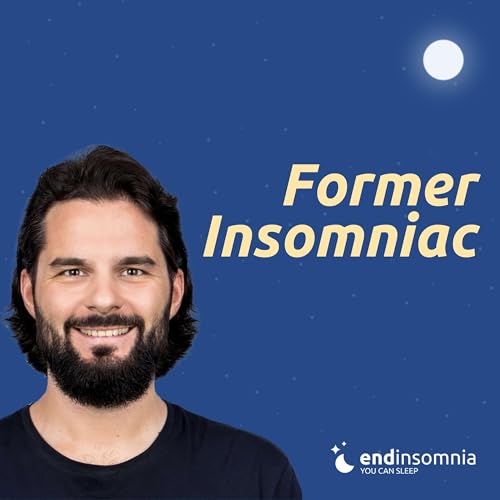If you have insomnia, you already know this:
An anxious thought can feel like a threat.
Not just an idea.
A threat.
And when your brain senses a threat, it does what it was designed to do.
It activates.
It mobilizes.
It keeps you awake.
That is why thought-challenging helps sometimes.
But it is also why thought challenging is not enough.
Because there will be nights when the thoughts keep coming.
Even if you challenge them perfectly.
So you need a second skill.
You need a new relationship with your thoughts.
This is what mindful acceptance of thoughts is for.
It is also called defusion.
Defusion means you stop being fused with your thinking.
You stop being inside the thought.
And you become the observer of the thought.
You still have the thought.
But the thought has less power.
Defusion does not erase thoughts.
It removes their authority.
Defusion becomes easier when you understand two things.
Fact 1: Thoughts are input, not reality.
Fact 2: Thoughts are impermanent.
Let's break them down.
Fact 1: Thoughts are input, not reality
Most people treat thoughts like facts.
If the thought says, “This is going to ruin me,” it feels true.
But thoughts are often just mental noise.
They are offerings from the brain.
They are suggestions.
They are predictions.
They are alarms.
Sometimes they are useful.
Sometimes they are wrong.
Sometimes they are old fear patterns firing again.
The key move is realizing you can receive a thought without obeying it.
This matters at night.
Because insomnia thoughts often demand action.
Take something.
Google something.
Change something.
Fix something.
Force something.
Defusion helps you pause before you act.
And that pause is where your freedom returns.
Defusion tool 1: Labeling “thinking”
Here is the simplest defusion tool.
You notice the thought.
And you label it.
You say, “Thinking.”
That's it.
That is the whole technique.
It sounds too simple.
But it is powerful.
Because labeling breaks the trance.
It pulls you out of the story and into awareness.
It reminds you that this is a thought, not a prophecy.
If “thinking” feels unnatural, use another phrase.
“I am having a thought.”
“I am having the thought that I won’t sleep tonight.”
This creates space.
Not by fighting the thought.
But by stepping back from it.
Then you choose what to do next.
You might return attention to your breath.
Or to a sound in the room.
Or to the feeling of your body in the bed.
Or to a calming activity.
The point is not to win an argument.
The point is to stop feeding the thought with panic.
Fact 2: Thoughts are impermanent
Thoughts change constantly.
Even when you are anxious.
Even when the content feels repetitive.
If you watch your mind for five minutes, you will see it.
One thought becomes another.
A memory becomes a plan.
A sensation becomes a story.
A story becomes a fear.
This matters because insomnia thoughts feel permanent.
They feel like they will last forever.
And that feeling creates more fear.
When you remember thoughts are temporary, you stop treating them like forever.
You stop acting as if you must solve them right now.
A thought is like the weather.
It can be intense.
It can be loud.
But it passes.
Sometimes slowly.
Sometimes quickly.
But it passes.
And when
 4 分
4 分 6 分
6 分 5 分
5 分 6 分
6 分 2026/01/313 分
2026/01/313 分 4 分
4 分 5 分
5 分 7 分
7 分
